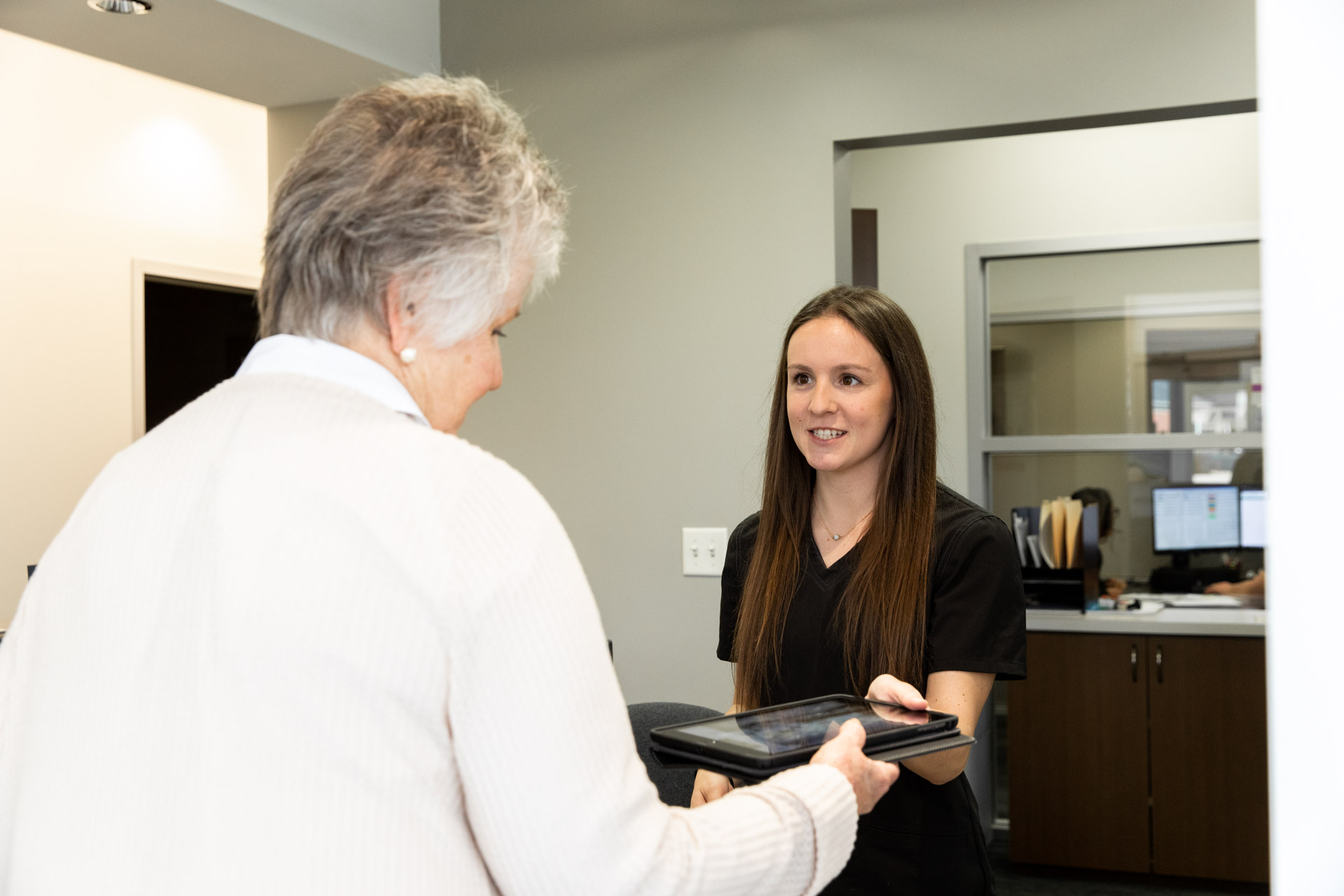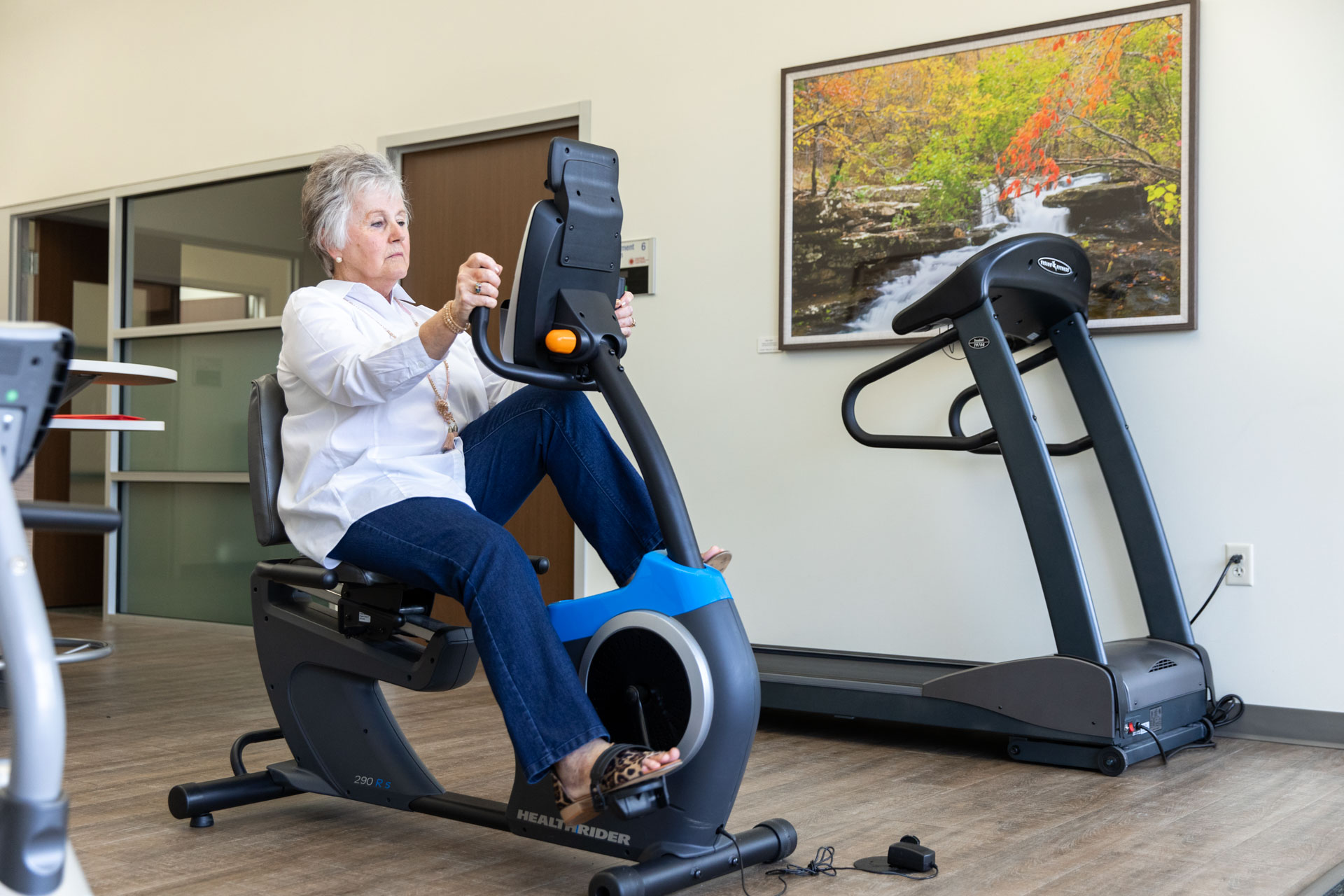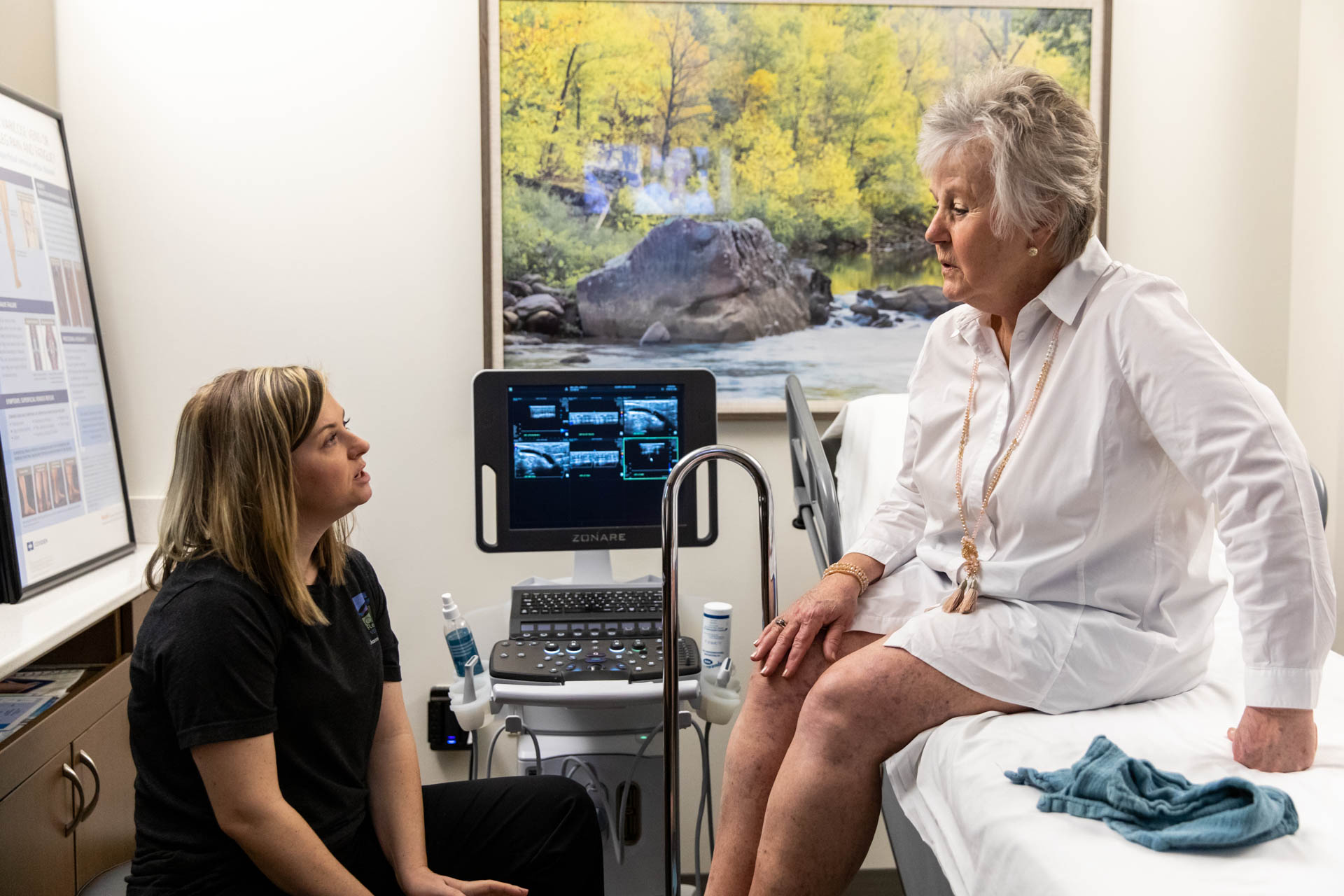So you’ve undergone your radiofrequency ablation, and now you’re wondering what happens after? Here’s the Ozark Regional Vein & Artery Center’s guide to radiofrequency ablation recovery in Rogers!
Post-Procedure Care
Bandages will be applied where needed to cover and protect the incision, and you will need to wear compression stockings to keep steady pressure on the veins in your legs once the ClosureFast™ Procedure is complete. Though you might want to take a few minutes to get comfortable and relax following the procedure, there is no downtime associated with radiofrequency ablation in Rogers.

You may experience some bruising and pain in the treatment area, but this is normal and will subside in a few days. The pain and bruising are similar to what you would experience with a flu shot, and patients are welcome to take over-the-counter pain-relievers following treatment.
Beyond that, our patients are free to continue with their normal daily activities after treatment. Whether that’s going back to work, running errands, cleaning up around the house, or playing with the kids, you’ll be good to go right when you leave our office in Rogers, near Bentonville.
That said, there are important recovery instructions that we’ll ask you to follow after your vein procedure. These include:
- Walk 5-10 minutes every hour you’re awake.
- Don’t lift over 20 pounds.
- Wear a compression hose for a provider-recommended amount of time (this will depend on the specific procedure).
Though we’ll ask you to follow these instructions carefully during your radiofrequency ablation recovery in Rogers, they’re temporary. Usually, patients can expect to follow these instructions for 10 to 14 days following their treatment. Additionally, each patient will receive a list of phone numbers to contact with any questions or concerns, including Dr. Haney’s phone number.
Improving Your Venous Health Without Any Procedures
Though conservative care isn’t an alternative to surgery, it’s vital to ensure the benefits of your radiofrequency ablation last. As a result, making sure to change your behaviors to improve your ablation results should be considered an equally important part of your radiofrequency ablation recovery.
So what all is there for you to do at home or in Rogers?
Our advice isn’t fun, and it’s certainly not glamorous, but it is simple: take care of your body.
Much of the stress we place upon our circulatory system is, with attention, easily fixed. Though some patients don’t have a say in the matter due to underlying issues, for most people, your vein care is up to you. Make sure not to smoke, consume less salt, watch your blood pressure and cholesterol levels, and lose weight if necessary.
Making health-conscious choices can be the difference between a robust, healthy circulatory system and unwanted pain and achiness managed through repeated vein treatments.

If you’re looking for more specific steps you can take to improve your vein health, here are a few activities you can do to improve venous insufficiency and overall circulation:
- Exercise. Exercising is a great way to improve venous insufficiency, as it gets blood flowing which can mitigate blood pooling in your veins. Walking and cardiovascular exercise are especially beneficial.
- Wear compression stockings. Compression socks or stockings apply constant light pressure to your legs, gently forcing blood up the veins in your legs through the applied pressure. Compression stockings may help alleviate the blood reflux that leads to discomfort.
- Elevate your legs. Elevating your legs while sitting down can naturally help the blood flow toward the heart, as your veins won’t have to work against gravity. This can improve circulation and lessen blood reflux in your legs.
Note: It’s important to remember that none of these behaviors should replace consulting a healthcare provider or vein specialist if you are worried about your vascular health.
Learn more about conservative management for leg veins →
Turn to the Ozark Regional Vein & Artery Center
If you are looking to learn more about radiofrequency ablation recovery in Rogers, contact the Ozark Regional Vein & Artery Center. Our experience and growing suite of care options enable us to guide you toward lasting wellness solutions for a happier, healthier life.
We are the premier practice in Northwest Arkansas for all the highest-quality vascular treatments available. Dr. Haney, Dr. Stout, and the expert staff have over 75 years of combined experience in the industry. Patients come to Dr. Haney from all over Northernwestern Arkansas, from Fayetteville to Bentonville, to ensure they receive the best concierge-level care.
After all, helping people is what we do, and it is our mission to provide the people of Northwestern Arkansas and beyond with the absolute best care possible. Our ever-expanding areas of expertise and commitment to patient education help us to achieve meaningful results for our patients each and every time.
If you’re interested in learning more about our treatments, check out our Virtual Vascular Screening Tool or schedule a consultation. We also hold regular free screening events. Sign up for our newsletter to be notified of our free public events and other practice specials!

